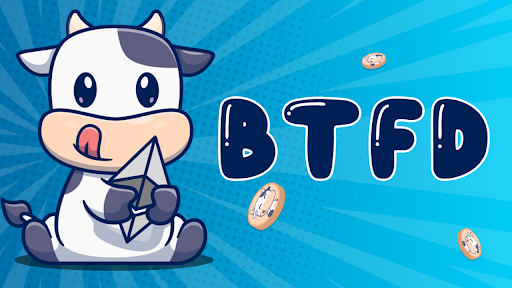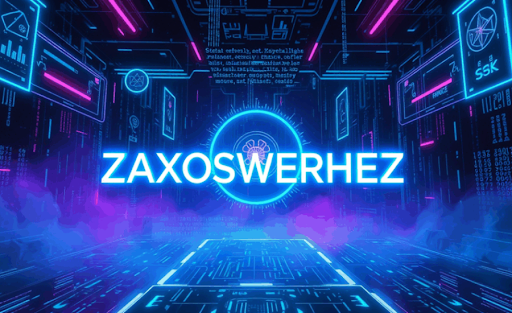Unlocking Success in Procurement: Your Ultimate Guide with ProcurementNation.com
Introduction
If you’re looking to master procurement, sourcing, and supply chain management, procurementnation.com is the essential resource you need. This platform offers comprehensive insights, strategies, and tools designed to streamline purchasing processes, enhance supplier relationships, and optimize supply chains for businesses of all sizes. In this guide, we’ll explore everything from procurement basics to advanced supply chain tactics, helping you gain the knowledge and confidence to drive impactful results in your organization.
What Is Procurement?
Procurement is the structured process by which businesses acquire goods and services needed to operate efficiently. It involves identifying needs, evaluating suppliers, negotiating contracts, and ensuring timely delivery. More than just a purchasing function, procurement is a strategic business activity that influences profitability, risk management, and operational efficiency. As highlighted by procurementnation.com, successful procurement can significantly reduce costs and build strong supplier relationships that enhance product quality and service reliability.
Procurement can be broken down into direct and indirect procurement. Direct procurement involves goods and materials that go into the final product, while indirect procurement covers items essential for daily operations such as office supplies or services like IT support. The efficiency of these procurement processes directly affects the organization’s bottom line.
The Strategic Importance of Procurement in Modern Business
In today’s global economy, procurement has become a critical element of strategic planning. It supports a company’s ability to respond to market changes, improve product offerings, and meet customer expectations. Strategic procurement goes beyond cost savings. It involves creating value, ensuring compliance with regulatory requirements, and fostering innovation.
Through platforms like procurementnation.com, procurement professionals gain access to knowledge that helps them align purchasing strategies with overall business goals. This includes insights on leveraging global supply markets, building long-term partnerships, and adopting sustainable procurement practices.
Key Components of the Procurement Cycle
The procurement cycle consists of several interconnected stages:
- Need identification: Determining what goods or services are required.
- Supplier research and selection: Evaluating potential vendors based on cost, quality, reliability, and ethical standards.
- Contract negotiation: Agreeing on terms and conditions to ensure mutual benefits.
- Purchase order management: Issuing orders and ensuring alignment with procurement policies.
- Delivery and inspection: Receiving goods or services and verifying compliance with specifications.
- Invoice and payment: Ensuring timely and accurate financial transactions.
According to procurementnation.com, understanding each of these stages helps professionals identify bottlenecks and implement process improvements that save time and money.
Procurement Strategies That Drive Business Growth
To stay competitive, businesses must adopt strategic procurement approaches tailored to their unique challenges and opportunities. Common strategies include:
- Centralized procurement: Consolidates purchasing decisions for greater control and volume discounts.
- Decentralized procurement: Allows individual departments to manage their purchasing needs, promoting flexibility.
- Category management: Groups similar items for more efficient supplier management and cost tracking.
- Total cost of ownership (TCO): Focuses on long-term costs rather than just purchase price.
Procurementnation.com offers expert advice on implementing these strategies effectively and adjusting them as market conditions evolve.
Leveraging Technology in Procurement Operations
Technology has transformed procurement into a data-driven discipline. Tools like e-procurement platforms, supplier management systems, and artificial intelligence allow businesses to automate routine tasks, gain insights through analytics, and enhance decision-making.
For instance, e-procurement platforms streamline the purchase-to-pay process, while AI can forecast demand, detect fraud, and recommend optimal sourcing strategies. At procurementnation.com, readers can explore case studies and product reviews to select the right tools for their business needs.
Supplier Relationship Management: Building Stronger Partnerships
Suppliers are not just vendors; they are strategic partners who can drive innovation and deliver competitive advantages. Effective supplier relationship management (SRM) involves:
- Transparent communication
- Performance tracking
- Mutual goal setting
- Conflict resolution
According to procurementnation.com, investing in SRM improves supplier reliability, reduces risks, and fosters collaboration that leads to product and service innovation.
Procurement Risk Management: Preparing for the Unexpected
Risks in procurement can range from supplier failures and price volatility to geopolitical disruptions. A robust risk management strategy involves:
- Identifying potential risks early
- Diversifying the supplier base
- Monitoring market trends
- Creating contingency plans
Procurementnation.com provides real-world examples and practical frameworks for mitigating risks and maintaining supply chain resilience under pressure.
Sustainable and Ethical Procurement Practices
Consumers and regulators are increasingly demanding sustainability and ethical behavior in supply chains. Sustainable procurement involves choosing suppliers and materials that minimize environmental impact and uphold social standards.
Ethical procurement means avoiding suppliers involved in child labor, unsafe working conditions, or corruption. Guides and resources from procurementnation.com help organizations assess supplier practices and integrate sustainability into their procurement criteria.
Measuring Procurement Performance: Key Metrics and KPIs
To assess the effectiveness of procurement activities, organizations must track key performance indicators (KPIs) such as:
- Cost savings
- Supplier performance
- Procurement cycle time
- Compliance rates
- Risk exposure
Procurementnation.com emphasizes the importance of using data analytics to identify areas for improvement and demonstrate procurement’s strategic value to stakeholders.
The Role of Procurement in Supply Chain Integration
Procurement is deeply interconnected with other supply chain functions like logistics, inventory management, and production planning. Seamless integration ensures better coordination, reduces delays, and optimizes inventory levels.
Procurementnation.com explores how integrated supply chain strategies improve responsiveness and help businesses adapt quickly to changes in demand or disruptions.
Digital Transformation in Procurement: Embracing the Future
Digital tools such as blockchain, robotic process automation (RPA), and cloud-based platforms are redefining procurement. These technologies offer:
- Improved transparency
- Faster transactions
- Real-time tracking
- Enhanced collaboration
Insights from procurementnation.com show how businesses are leveraging digital innovations to achieve operational excellence and gain a competitive edge.
Professional Development and Career Growth in Procurement
Procurement is a dynamic field with growing career opportunities. Key skills include negotiation, analytical thinking, risk assessment, and technology adoption. Certifications such as CIPS, CPSM, and PMP are valuable for advancing in the profession.
Procurementnation.com features interviews with industry leaders, job trends, and career development resources to support professionals at every stage.
Common Challenges in Procurement and How to Overcome Them
Procurement professionals often face issues such as budget constraints, supplier disputes, and compliance hurdles. Strategies to overcome these challenges include:
- Leveraging technology for cost control
- Strengthening supplier contracts
- Regular training on compliance requirements
Practical solutions shared on procurementnation.com empower teams to tackle obstacles proactively and efficiently.
Procurement in Different Industries: Unique Considerations
While procurement principles are universal, each industry has specific requirements. For instance:
- Healthcare: Emphasizes regulatory compliance and product safety.
- Manufacturing: Focuses on just-in-time delivery and quality assurance.
- Retail: Prioritizes cost control and demand forecasting.
Procurementnation.com offers industry-specific insights and best practices tailored to different sectors.
Global Procurement: Managing International Supply Chains
Operating on a global scale introduces challenges like cultural differences, currency fluctuations, and regulatory variations. Effective global procurement requires:
- Local market knowledge
- Strategic sourcing
- International logistics coordination
Resources at procurementnation.com help businesses navigate global procurement complexities with confidence.
Conclusion
Mastering procurement is essential for any organization aiming to thrive in a fast-changing world. With comprehensive resources, expert insights, and actionable strategies, procurementnation.com serves as a trusted partner on your journey. Whether you’re a procurement novice or a seasoned professional, leveraging the tools and knowledge available on this platform will enable you to make smarter decisions, build stronger supplier relationships, and drive sustainable growth.
Keep an eye for more latest news & updates on Ancient Artz!






